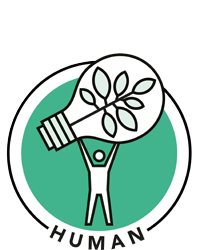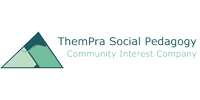
Human Learning Systems: Public Service for the Real World
Are you fed up with being managed by targets that don’t reflect the lives of the people you help? Of writing plans and budgets that you know are a fantasy? If so, you can choose to do public management differently.
An introduction to Human Learning Systems
Human Learning Systems is a radically new way of doing public management: the task of resourcing and organising public service.
It has been created by public service workers, managers and leaders who were fed up with the way that targets and markets create dehumanising, fragmented and wasteful public service, divorced from the reality of the lives of both the people being supported and the people who support them.
We’ve got nearly 50 case studies of the HLS approach being implemented. Over the last nine months, we’ve been working with organisations who have been leading this change to learn what HLS practice looks like in different contexts: from national governments through to local voluntary sector organisations. We’ve turned the learning from these case studies into an e-book and summary report. This microsite highlights some of the key things we’ve learned.
Human Learning Systems starts with the complex reality of the lives of people being supported. It enables workers to build relationships and learn together with those they support. It creates real outcomes for less money, by bringing together all the elements of the systems by which outcomes are made. It is public service for the real world.
Read the case studyChangemaker Collective Impact Agency“Honestly, working in an HLS way feels like a great weight has been lifted off our chest – and this is a reaction we often see in others. So many people know intuitively that our current accepted ways of working don’t work, but they haven’t previously had any language to give expression to this.”

The purpose of public service is to support human freedom and flourishing.
To respond to each person’s unique life context, public service is bespoke by design: built on strong relationships and trust.

Public service should be a process of ongoing exploration and learning: workers and residents exploring and learning together. Learning is the management strategy - the primary task of public managers and leaders is to create effective learning environments.

Real outcomes cannot be “delivered” by public service - they are created by whole systems: all the relationships and factors in someone’s life. Real outcomes are made by healthy systems - systems in which all the actors involved can collaborate and learn together.
Collaborators
The core organisations who have created this report are:






Principles in action: How change happens
Learning is the method by which change happens. The change process to adopt the HLS approach is itself a learning process. To implement an HLS approach to organising public service you can create a Learning Cycle for the system that produces the outcomes which matter to you. The process of shifting from the current dominant way of doing public management (which is called ‘New Public Management’) to an HLS approach is a process of paradigm shift - change in the foundational management beliefs, and the processes and practices which support and enact those beliefs.
Dissonance is the energy for change - find it
The generalisable experience from across many of the HLS case studies is that dissonance and dissatisfaction provide the starting energy for change. Who else is feeling dissatisfied with how things currently work?
Validate, amplify and make sense of that dissonance
Once you have found others who are experiencing dissonance, how can you collectively validate and make sense of that dissonance? Creating platforms in which people can express counter cultural “heretical” perspectives can be useful in this respect. This helps to create a sense of collective bravery in your context.
Learning is the strategy, experimentation is the method
As we have explored above, adopting an HLS approach is an example of itself. People learn their way to HLS practice.
Be infectious
If you’re doing something different, others will be curious. You can develop that curiosity into being an ally by creating opportunities to share your experiences across organisational boundaries. Think of this as growing a network of allies by infecting people with your experiences. Remember - there is little value in trying to convince people. If what you’re doing is interesting and useful, others will likely find it so too. All you need to do is share generously.
Make the money behave differently
To make lasting change in the public management paradigm in your context, at some point you will have to change the structural processes by which resources are allocated and accounted for; at some point, you will have to make the money behave differently.
Principles into action: Case studies
All of these case studies have been created by pioneers who have created radical change in their day to day public management practice.

Collective Impact Agency, Gateshead
Building a learning system between grassroots and public service organisations, to enable collaborative working during the COVID crisis.

Mayday Trust
An organisation that tore up its previous way of working with homelessness to develop a strengths-based approach to supporting people who have experienced trauma, built on developing relationships and personalised coaching.

The Children’s Society
Tackling child exploitation - disrupting the systems which enable child exploitation, by bringing actors together to learn and experiment.

Plymouth Alliance
A ‘whole system’ approach to supporting people who have complex needs around homelessness, mental health and substance misuse. The Alliance is built on a 10 year, £80m contract from the council and NHS without any performance targets, in which public and voluntary sector organisations are commissioned to collaborate and learn together to achieve shared purpose.

Liverpool City Region Combined Authority
Homelessness support - a radically different way of commissioning homelessness support services, based on building a support system characterised by learning together and trust.

Wellbeing Teams
A home care service built on strong relationships between those who are providing care, and those being cared for; care is bespoke for each person being served. The first ever self-managed homecare organisation to receive an outstanding rating from the Care Quality Commission.

Finnish National Agency for Education (EDUFI), Innovation Centre
National government enabling world-leading education and child welfare outcomes by creating local learning systems, in which schools, families and municipalities are supported to experiment and learn together.

Healthcare Improvement Scotland, ihub
Creating a learning system for across places in Scotland to enable rapid learning during the COVID-19 crisis.
Adopting a Human Learning Systems approach to public management means creating learning systems that are connected across different “system scales” - from a person’s “life as system”, through to a “country as a system”.
We explore how the learning systems at different scales work to enable public service for the real world.
1. HLS Impact for those being served
The impact of HLS starts in the experiences of real people, and as we understand their stories, we see that outcomes are highly contextual and individual. HLS sees each person’s life as a complex system, which workers and the people themselves explore together.
"It's the first time we felt anyone listened."
(From Saskie Dorman, of Dorset Health and Social Care)
2. HLS and organisations
How can organisations become learning systems which enable workers on the ground to learn together with those they support? Chapters in this section explore the Implications for Workforce Recruitment and Selection, the Implications for Organisational Learning & Development and Experimenting and learning during a crisis: A voluntary sector perspective.
3. HLS and place: transforming local systems
In complex, real-world environments, decisions are often made best when based on an understanding of the local context. To enable whole person ‘human’ approaches, we need to understand the range of factors that impact an individual – to identify underlying challenges and uncover opportunities, assets and actors in a local place that can be part of developing solutions. This chapter explores what it means to create healthy systems at a place level.
4. HLS and National Government: Humble Government
The HLS approach to public management devolves decision-making power into the relationship between people and the workers who support them. What then is the role of national government in enabling effective and efficient public service? This chapter explores the idea of “Humble Government” - national government that doesn’t assume that it knows best - and the role that national governments play in creating learning systems within and across places.
Emerging themes

1. Funding & Commissioning
Places and organisations implementing an HLS approach have developed a completely different approach to commissioning. They recognise that organisations cannot be effectively funded or commissioned to “deliver” outcomes, but instead should commission so as to create the healthy systems from which outcomes emerge. This means:
Fund/commission for relational, bespoke support - where providers build high-quality relationships with those they support and respond to whatever strengths and needs they find.
Fund/commission for learning - so that organisations involved have the explicit expectation to learn together.
Fund/commission for collaboration - creating pooled budgets, reducing competition between actors in a system, and purposefully creating a culture of trust between actors.

2. Leadership Implications
An HLS approach to public management creates different kinds of demands on leaders. The kind of leadership required to create change in complex systems can come from anywhere and anyone, although the roles they play might be quite different. In a matrix we set out the nature of these contributions, looking from the perspectives of people with more or less authority within their organisations and across a local system.
While these roles may differ, they are complementary. Systems change is the ultimate team sport, and for new models of practice like HLS to take root and thrive in healthy local systems, it will require brave and generous leadership with many playing their part.

3. Human Learning Systems meets Social Pedagogy
Social Pedagogy is a successful public service learning practice and a profession in its own right in many European and Latin American countries.
Social pedagogy offers a holistic way of working with children, young people and adults to support wellbeing, learning and social inclusion. At the heart of social pedagogy lies a belief that each person deserves to be treated with dignity and possesses unique inner resources and potential, which we can help them unfold.
To do so requires meaningful and authentic relationships that enable us to recognise a person’s potential, their qualities, strengths and interests, and to create learning situations in which people can experience their resourcefulness and develop new abilities.

4. Evidence on Public management paradigms
Human Learning Systems offers an alternative to the currently dominant paradigm for public management, which is called “New Public Management” (NPM). NPM was developed in the 1980s with the promise that it would make governments more efficient and effective. Research by world-leading public management scholars shows that it has not kept that promise:
“(NPM)... was ostensibly intended to create “a government that works better and costs less”... So what do we have to show for three decades or so of NPM reforms? The short answer seems to be: higher costs and more complaints.” Hood and Dixon (2015)
This chapter explores the evidence which can help those who manage and lead public service to choose which public management paradigm they want to use.

Download
the e-book
We have been seeking to develop complexity-informed public management approaches for the past five years (and more). Each organisation has its own version of this story. You can see some of these different stories here.
This report is the third in a series in which we have sought to articulate our growing knowledge about complexity-informed public management practice.
The first two reports are:
Join the community
Let us know what you think about the report. How do these themes work in your context?
Join the Human Learning Systems community to connect with other practitioners and stay up to date with news and events exploring HLS in the real world.
FAQ's
Key questions
-
The current way of delivering public service isn’t working because it doesn’t reflect how the real world works
Human Learning Systems works to produce better outcomes for less money whilst also creating happier staff
You can use HLS as an approach to public management at any scale - from local voluntary sector to national government and there are lots of examples of this in practice that you can learn from - have a look at the case studies in the e-book
HLS vs other models
-
The current system, New Public Management, starts with the assumption that people are selfish and must be forced to deliver “results” targets through reward and punishment. These targets don’t reflect the reality of our lives.
HLS starts at the other end of public service, by building relationships with real people - the people we’re trying to help. By genuinely understanding and responding to the complex reality of people’s lives - their strengths and their needs - we can create better outcomes more efficiently.
-
HLS practice was created by public service workers and leaders who were fed up with the problems of NPM and wanted to try something different. They have been supported by a range of academics, think tanks and consultancies to learn and reflect about the alternative. You can see a list of the organisations who have been developing practice here, and those who have supported this development here.
-
There are three issues with NPM:
It’s dehumanising - it treats people as data points - as if what is measurable about them is all that matters, rather than looking at the complex reality of their lives.
It is slow to learn and adapt - because it treats workers as people who must be controlled, it sets predefined performance targets, and measures people against those. Controlling people by targets which change annually makes them slow to adapt to sudden changes.
It creates fragmentation by breaking down public service into individual contracts, meaning that people don’t get the holistic support they need.
The combination of these makes NPM wasteful and inefficient. It spends money not helping people - trying to produce standardised outcomes through fragmented services which aren’t meaningful, and is slow to learn and adapt.
The reason it continues to be the prevailing model for public management is that it creates a simplified fantasy world for managers to live in by offering them the illusion of simplicity and control. We need to get comfortable with the complexity of the real world.
-
A review of 30 years of evidence around NPM practice declared: “So what do we have to show for three decades or so of NPM reforms? The short answer seems to be: higher costs and more complaints.” Hood and Dixon (2015)
You can find further evidence here but if you work in public service, you are probably experiencing the problems it creates every day. Sir Peter Housden, ex head of the Civil Service in Scotland, wrote in 2016 about “the unconscionably long death of New Public Management” and bemoaned the absence of an alternative.
-
NPM has been the dominant model since the late 1980s. It is used across most of the “western” world (to different degrees). It is most thoroughly used in the US, UK, Australia and New Zealand, but has touched most of the globe. Any service that is run using performance targets, league tables and/or outsourced contracting is heavily influenced by NPM.
The mindset begins to change when people get fed up with the problems it creates. Change starts with curiosity and people who are fed up with pretending.
-
HLS and NPM have different foundational beliefs. They view the world, and the reality of people’s lives, differently. You can’t graft HLS practices onto NPM beliefs. If you’re a manager who believes your staff must be controlled to make them do a good job through reward and punishment, you won’t be able to adopt HLS practice. If you want your staff to understand and respond to the reality of each member of the public’s life, you have to set up your service to build relationships, learn and adapt to whatever they find in those relationships, you’ll need to ditch pre-defined performance targets. It’s your choice.
-
NPM creates its own version of reality that feels real to those working under it. If you’re a civil servant being leant on to “prove” that you’ve hit COVID-19 testing targets, that will feel real to you. The question is: whose reality is being prioritised? NPM prioritises the abstracted reality of simplified, standardised targets - the reality of the people who set them - rather than the lives of the people being served.
Think of it like this: if someone you care about gets admitted to hospital, what would you like the person caring for them to be focussing on? About how they hit a predefined performance target or on understanding the reality of the person in front of them? Both of those things can be real to the doctor/nurse. NPM chooses one reality, HLS another.
Putting HLS into practice
-
Yes. HLS can and should be adapted to local contexts, because each local context is different. But there are ways to also apply it at a national (and international) level. The focus of the model is on learning and adapting. The key is establishing learning systems at each scale, and creating roles within the systems which will enable this learning to make sure it’s happening effectively.
-
Moving away from NPM to HLS is a learning process and not something that will happen overnight. You may well find that some of the practices you have developed, such as coproduction and aspects of measurement for learning, can be useful in your new approach. You will learn what works for you, in your context. You can learn from other places, and share your learning with them.
-
Adopting HLS means adopting a learning strategy - at whatever scale of public service system you work at. If you’re someone who works directly with the public, you can start by asking those you serve about what you should be achieving, and then learning with them about how to do it. For example, by doing this repeatedly, Dorset Palliative Care service worked out that their high level purpose is: “help me to live well until I die”.
If you’re a commissioner, you can start by asking: which people and organisations contribute to what I’m seeking to achieve? And then, you can learn together on how best to do that.
If you’re a national civil servant, you can ask - how do the places that carry out my aims learn? How can I support them to learn and adapt more effectively?
All of this starts with a dissatisfaction with the way things are done now. If you’re feeling it, others will be feeling it too. Find those people, validate one another’s sense of dissonance, and work together to create a system that learns from the experiences of those you seek to serve.
-
There are many resources that can help you get started on our website here. We will also be running webinars that will explore this topic. You can sign up here. To get all the latest information on HLS please sign up here.
If you need help with developing your version of an HLS approach, contact any member of the HLS Collaborative, via this mechanism.
-
The HLS journey began with exploring how funders and commissioners can work differently, and there are now many case studies at local and national government level of HLS commissioning practice - for example, in Plymouth and Liverpool at local level, and the Foreign and Commonwealth Development Office at national scale.
-
Politicians have got sucked into the simplified illusion of control that NPM offers, but it's a trap for them as much as anyone else. HLS can help politicians to help the communities they serve.
The politicians who have got involved with an HLS approach recognise that:
HLS helps real people - and so creates positive public service stories
HLS is better value for money
It requires politicians to learn different types of behaviour and language, but the payoff is better, with cheaper public service in the end.
Measuring impact and cost
-
It is standardised practice that is slow to adapt which is expensive - because it wastes money not helping people. Whenever public service workers focus on hitting a target rather than helping the person in front of them, they are wasting money by doing stuff which isn’t real.
HLS approaches seem to be cheaper than NPM approaches, because they focus resources where they are needed. For example, Plymouth Council was able to reduce its emergency accommodation homelessness spending by 50% by supporting families, rather than evicting them. Wellbeing Teams were able to reduce unplanned hospital costs by 80% for those in their care, by forming relationships with them, and responding to their particular needs, rather than delivering 15 minute standardised care packages.
HLS approaches are also better value for money because they don’t waste resource on pointless bureaucracy - such as control-based performance management. Instead, they focus on activities which actually improve practice, and therefore improve public service.
Finally, HLS is cheaper because it improves staff welfare. Both sickness and turnover rates are reduced, meaning less money is spent on replacement staff, and the costs of recruitment.
-
It is impossible for any public service to identify its “impact” on people’s lives - because it is impossible to separate the impact of the service from all the other things that happen in their lives. Public service has wasted huge amounts of money trying to demonstrate the impossible.
We can understand progress in people’s lives by enabling the public, and those who work in public service to learn together. This allows people to see the complex, messy change that happens in the real world.
-
The evidence is that public servants (like most workers) are motivated by Mastery, Autonomy and Purpose. They want the chance to be good at what they do, they want to be able to decide how to apply their skills in context, and they want the chance to serve a purpose greater than themselves. For example, Plymouth Alliance has used this motivational framework to produce better outcomes, for less money.
-
HLS builds trust between stakeholders at every level of the public service system. That means, by design, constant communication about progress shared, and the participants reflect and learn together. This is vital, as is having stewards as part of the process that ensure this process is happening smoothly.
Human
-
The only people who have enough understanding of each person’s strengths and needs are (a) the person themselves (or their family/friends/carers) and (b) the public service worker who has a strong enough relationship with them to understand the context they’re in. By enabling public service to build these relationships, and placing decisions about what public service provides, into this relationship, the particular strengths and needs of each person are met.
-
Only bespoke services are cost effective. Standardised services waste huge amounts of money by providing things that aren’t relevant to people. Bespoke service ensures that people get what they need, and nothing else.
-
Freedom means that the only person with the right to define what counts as a good outcome in your life is you (or family/carer etc if you’re a child, for example) - as long as that outcome is compatible with flourishing for others. Flourishing means that we all have access to the help we need to enable our lives to flourish, whatever that means to us.
Learning
-
It is likely that different people will learn different lessons - because they come from different perspectives. HLS enables people to bring different knowledge together and collectively make sense of what to do - that is built into the process itself.
-
People themselves, and the workers who have a strong relationship with them, know what is important in people’s lives. Together they can explore what will help that person/people flourish.
-
The aim of HLS is to create systems that are ‘healthy’ and therefore create the desired outcome. Doing this usually requires conscious work. We call this work “System Stewardship”. System Stewards are people whose job it is to enable people and organisations to collaborate and learn together.
System stewardship is a continuous effort. It requires consistent, honest, and open communication about what is happening and what can be learnt and therefore what needs to be adapted. Building trust is an essential part of HLS as it requires departments and organisations to work together to create better outcomes. There are a number of different ways to create this role, but these are the consistent characteristics of it.
Systems
-
A system is a set of relationships that make something happen. For HLS, “the system” is the set of people, organisations and causal factors which combine to create an outcome in someone’s life. For example, if we look at the outcome of “wellbeing” in someone’s life, this may be created by:
The person themselves
Their family and friends
Their employer (if they have one)
The people/organisations responsible for public/green space near to them
Those who provide cultural and sporting provision in their place
Their neighbourhood association and community centre(s)
The health service (in all its local and national manifestations)
Welfare/benefits agencies
The local authority
The most important part of a system, from an HLS perspective, is the person, family or group whom the outcome is for. The people being served are the core of “the system”; they are not viewed as separate from “the system”.
-
Both research evidence and people’s own experience demonstrate that outcomes are made by systems.
For example, UK Government research into obesity in 2007 identified 108 different factors that contribute to the outcome of “obesity” (or its absence).
Every person being served, and the worker who serves them, knows the range of different people, organisations and factors that contribute to achieving an outcome in their life. It is the natural complexity of life.
-
Who and what to include in “the system” that leads to an outcome in someone’s life is a judgement call, and also a matter of experimentation and learning. Only the people involved will know whether they’ve got the boundaries of a system right and the boundaries will likely change over time, as the world changes.
-
Healthy systems are those in which the actors involved (people and organisations) collaborate and learn together. To create healthy systems usually requires conscious work. We call this work “System Stewardship”. System Stewards are people whose job it is to enable people and organisations to collaborate and learn together.
System stewardship is a continuous, conscious effort. It requires consistent, honest, and open communication about what is happening and what can be learnt and therefore what needs to be adapted. Building trust is an essential part of the HLS as it requires departments and organisations to work together to create better outcomes.
-
Start wherever you can, at whatever scale you can. If you do something interesting and exciting that creates happier staff and positive stories from the people you’re serving, others will want to join in.
-
Chances are the other departments will already be involved in the person’s life you’re trying to help. It’s not joining up that is wasteful.
-
Yes. There are three key roles when enacting a Human Learning Systems approach at the national level:
Supporting places to learn
Supporting learning across places
Learning from places (and enacting required structural change)